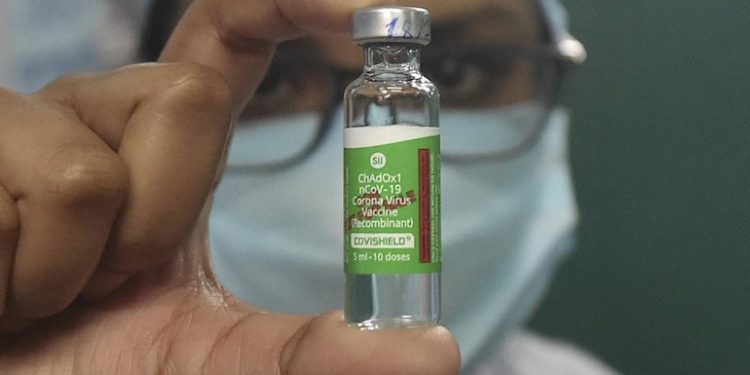- New Delhi’s gesture to export Covid-19 vaccines, which are being produced locally by the Serum Institute of India (SII), to selected three SAARC nations has triggered a smear campaign against India in neighboring China.
THD NewsDesk, New Delhi: New Delhi’s gesture to export Covid-19 vaccines, which are being produced locally by the Serum Institute of India (SII), to selected three SAARC nations has triggered a smear campaign against India in neighboring China.
In a bid to damage the ‘Vaccine Maitri’ diplomacy, the Chinese government mouthpiece Global Times targeted India on its capacity to manufacture vaccines in bulk after the unfortunate fire breaking out at the SII in Pune.
Citing a recent BBC report, where the patients’ rights group — All India Drug Action Network — said it was “baffled to understand the scientific logic to approve an incompletely studied vaccine,” the Global Times claimed that the SII-manufactured Covishield’s approval was rushed into and failed to complete a “bridging study” for the vaccine.
Further, in a subtle dig in India, the Chinese newspaper claimed that, on the other hand, “Indians in China are meanwhile embracing Chinese vaccines against the SARS-COV-2 virus.
India has already shipped vaccines to neighboring countries like Bhutan, Maldives, Bangladesh, and Nepal. Myanmar and Seychelles are the next in line.
Political experts in India believe that the country’s decision to share vaccines is a goodwill gesture in the time of crisis. It is an initiative that will have a saluting impact on India’s relationship with its neighbors. Besides, all the top leaders of our neighboring countries have thanked Prime Minister Narendra Modi for the vaccines received.
The Global Times further quoted the BBC report to claim that “intense concerns were arising from the absence of the efficacy data” of the SII-produced COVISHIELD vaccine.
While India has been sending millions of free vaccines to its neighbors, Bangladesh, too, turned to India to get free vaccines after China asked it to share costs of clinical trials of Sinovac — the efficacy for which has also been contested.
China has tried to use this vaccine to refurbish its image. But the essential difference is China’s reliability all over the world is very low.
Meanwhile, India had indicated that it would cooperate with all countries, even before the vaccine came in. Some 150 countries to which some medicines like hydroxychloroquine, remdisivir, and other medicines, PPEs, and other things were sent by India.
In its report, the Global Times further quoted anonymous “netizens” and analysts in an article to say that the SII fire “may affect people’s confidence in high-quality vaccine production.” “India’s vaccine production capacity was unlikely to keep up with the Indian government’s ambitions,” it said.
Interestingly, in early January this year, an article in the Global Times stated, “Experts suggested that India’s vaccines are no less competitive than Chinese Covid-19 vaccines in both research and production capacity, considering that India has the world’s largest vaccine manufacturer and lower costs in labor and facilities.”
Come January 27, India will donate 500,000 doses of the vaccine to Sri Lanka. The Centre has also assured Kabul that Afghanistan will figure high on India’s priority list for the Covid-19 vaccine once the local regulator grants its use.
Meanwhile, apart from its key diplomatic ally – Pakistan – China has been unable to offer much vaccine support to countries in the region. It predominantly looks to hegemonize both economically and politically.
While Nepal’s drug regulator is yet to approve the use of Chinese vaccines, the Maldives has shown zero indication of any delivery of Covid-19 vaccines by China so far. Even Cambodia, Beijing’s close ally, snubbed China and recently requested India for vaccines despite having received a million Chinese vaccine doses.
India is also supplying vaccines on a contractual or commercial basis to Saudi Arabia, South Africa, Brazil, Morocco, Bangladesh, and Myanmar.
Source: News18























